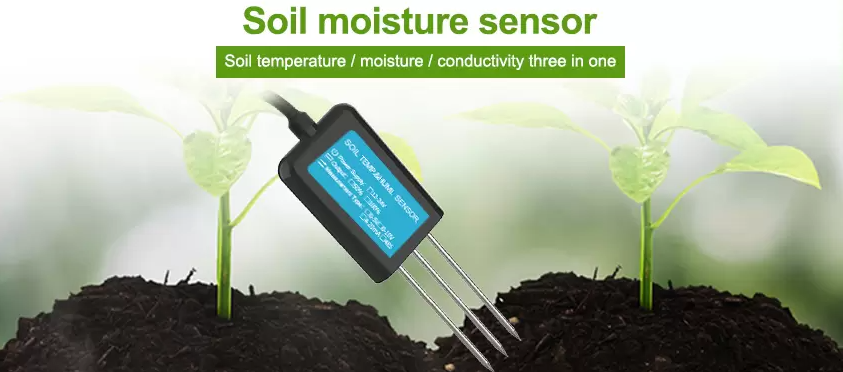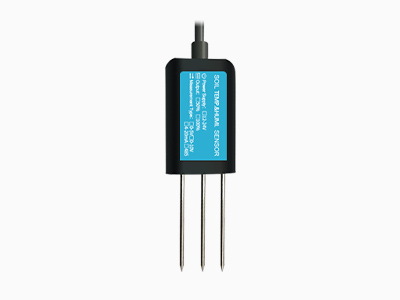Understand the soil moisture sensor
with the advent of soil moisture sensor, farmers can now accurately measure soil moisture in real-time, allowing for more efficient irrigation management. Soil moisture is a crucial factor in agriculture, affecting crop growth and yield. Farmers need to know the soil moisture content to determine when to water their crops and how much water to use. Traditional methods of measuring soil moisture, such as visual inspection or using a soil probe, are time-consuming and labor-intensive.

Working principle of soil moisture sensor
Soil moisture sensor work by measuring the electrical conductivity of the soil. As soil moisture increases, the electrical conductivity of the soil also increases. The sensor detects this change and sends a signal to the farmer indicating the soil moisture level. There are different types of soil moisture sensors available, including capacitance sensors, tensiometers, and neutron probes. Capacitance sensors are the most commonly used type of soil moisture sensor as they are affordable, easy to use, and can measure soil moisture at different depths.
Advantages of using soil moisture sensor
One of the main advantages of using soil moisture sensors is that it allows farmers to irrigate their crops more efficiently. By monitoring soil moisture levels, farmers can determine when their crops need water and how much water to use. This not only saves water but also reduces the risk of overwatering, which can lead to waterlogging and soil erosion. In addition, efficient irrigation management can result in higher crop yields, as crops receive the right amount of water at the right time.

Another advantage of using soil moisture sensors is that it can help farmers save time and labor. Traditional methods of measuring soil moisture require farmers to physically inspect the soil or use a soil probe. This can be time-consuming, especially for large farms. Soil moisture sensors, on the other hand, can provide real-time data on soil moisture levels, allowing farmers to make informed decisions quickly and easily.
Soil moisture sensors can also help farmers save money. By using water more efficiently, farmers can reduce their water bills and save on energy costs associated with pumping water. In addition, efficient irrigation management can result in higher crop yields, which can translate into higher profits for farmers.
However, there are some limitations to using soil moisture sensors. For example, soil moisture sensors may not be accurate in certain soil types or in areas with high salt content. In addition, soil moisture sensors require regular calibration to ensure accurate readings. Despite these limitations, soil moisture sensors remain a valuable tool for improving agricultural efficiency.
In conclusion, soil moisture sensors are a valuable tool for improving agricultural efficiency. By providing real-time data on soil moisture levels, farmers can make informed decisions about when and how much to water their crops. This not only saves water and reduces labor costs but can also result in higher crop yields and profits. As technology continues to advance, we can expect to see even more sophisticated soil moisture sensors that can provide even more accurate and detailed information to farmers.
